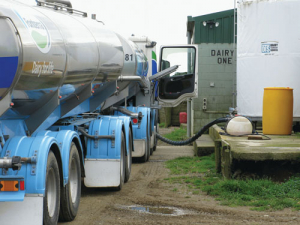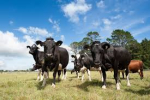Milk cooling affects milk quality: the faster milk is cooled after milking, the better its quality at collection.
According to DairyNZ, choosing the right cooling system for the farm means lower energy costs and lower risk of penalties due to milk temperature.
Milk cooling accounts for about 30% of the total energy costs of operating a dairy; energy demand and farm dairy operating costs can be reduced using different options that involve heat recovery from a cooling system.
Raw milk grows bacteria rapidly above 7°C. Meeting the new milk cooling standards, which took effect for all farms on June 1 this year, may require changes for some farm systems.
The MPI New Zealand Code of Practice for the design and operation of farm dairies has new milk cooling standards.
From June 1 this year raw milk must:
- be cooled to 10°C or below within four hours of the start of milking; and
- be cooled to 6°C or below within the sooner of six hours from the start of milking, or two hours from the completion of milking; and
- be held at or below 6°C without freezing until collection or the next milking; and
- must not exceed 10°C during subsequent milkings.
A dairy must efficiently cool milk before it enters the vat, using reliable and cost-effective systems to chill it quickly. Plate coolers, water chillers, ice and glycol systems are available and can be configured to meet farm needs.
Through the season, herd size, flow rates and water source temperatures change.
A farmer must be sure milk will be down to temperature before the tanker comes to collect it. Pre-cooling the milk before it reaches the vat is often the best way to confidently achieve low milk temperatures.
When assessing the best method of cooling onfarm, a number of factors come into play: site constraints, power reliability, size of herd, water availability and variable costs.
Selecting the right pre-cooling systemcan help to reduce energy costs by reducing peak power loads and ongoing shed operating costs.











